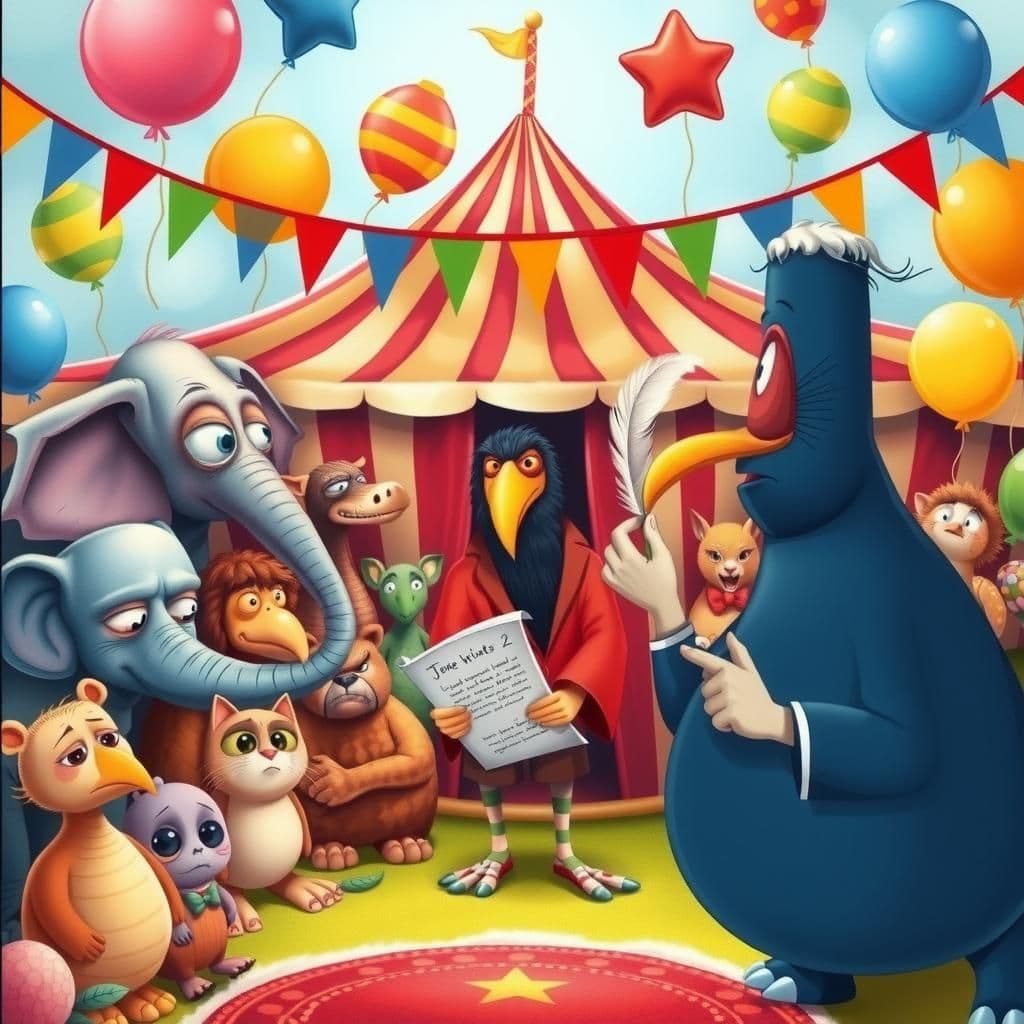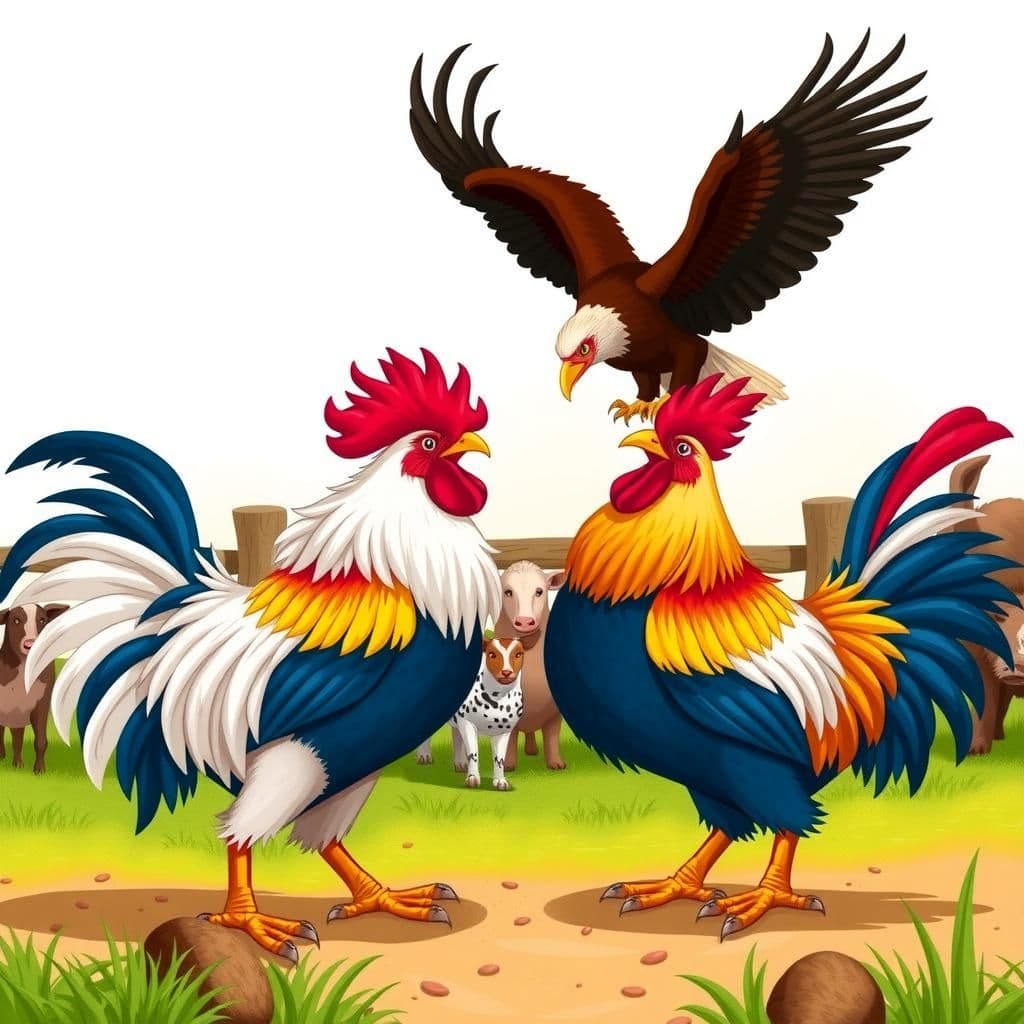The Fabulist and the Animals
A renowned writer of fables visits a traveling menagerie, where various animals express their grievances about his thought-provoking moral stories, particularly his ridicule of their features and habits. Each creature, from the Elephant to the Buzzard, laments how his satirical work overlooks their virtues, ultimately leading the writer to sneak out without paying, revealing a life-lesson in respect and humility often missed in simple moral stories. This short moral tale underscores the importance of acknowledging the worth of all creatures, even in the face of critique.

Reveal Moral
"The moral of the story is that criticism can be subjective and often reflects the critic's own biases, leading to disregard for diverse perspectives and experiences."
You May Also Like

The Writer and the Tramps
In "The Writer and the Tramps," a story that embodies the spirit of heartwarming moral stories, an Ambitious Writer arrogantly dismisses a Tramp's question about his shirt, claiming it symbolizes the genius's unconcern. The Tramp, in a simple yet profound act, carves "John Gump, Champion Genius" into a tree, delivering a life-changing lesson about the contrast between true talent and superficial arrogance. This moral short story reminds us that true genius is often humble and unassuming.

The Honourable Member
In this captivating moral tale, a member of the Legislature, who had vowed not to steal, returns home with a large part of the Capitol dome, inciting his constituents to hold an indignation meeting and consider punishment. Defending himself by claiming he never promised not to lie, he is oddly deemed an "honourable man" and elected to Congress without any pledges, showcasing the humorous yet educational nature of short moral stories.

The Fighting Cocks and the Eagle
In this captivating moral story, two game cocks battle for dominance in a farmyard, with one ultimately emerging victorious. However, the conqueror's pride leads to its capture by an eagle, allowing the defeated cock to take over without challenge. This wisdom-packed tale illustrates that pride often precedes one's downfall, serving as a concise moral lesson in humility.
Quick Facts
- Age Group
- adultkidschildrenstory for class 2story for class 3story for class 4story for class 5story for class 6story for class 7story for class 8
- Theme
- PrideCriticismHypocrisy
- Characters
- The Wise Writer of FablesElephantKangarooCamelOstrichBuzzardAttendant
Subscribe to Daily Stories
Get a new moral story in your inbox every day.